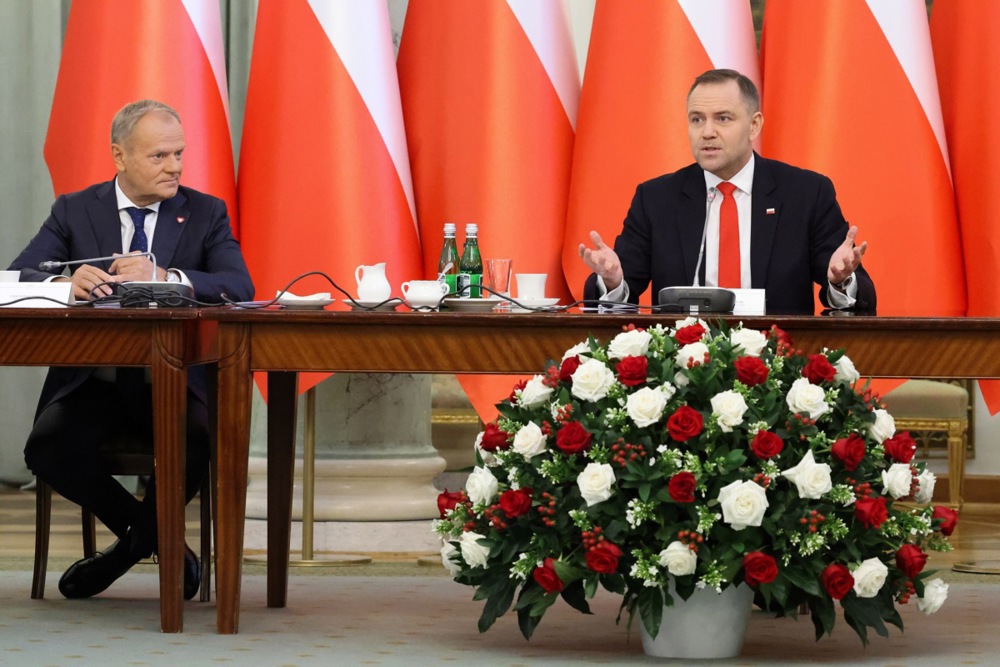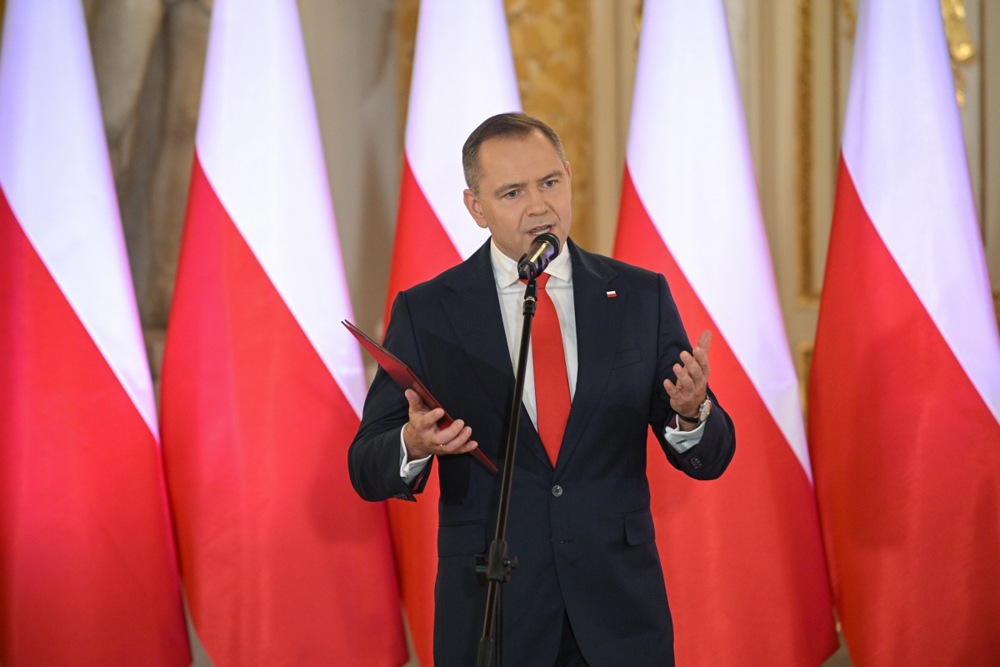Poland’s President Karol Nawrocki and Prime Minister Donald Tusk, ideologically poles apart, are set to clash over judicial reforms aimed at purging thousands of judges appointed during the lifetime of the previous Conservative government.
Nawroki is seen as an ally of the now-opposition Conservatives (PiS).
Poland’s justice ministry on October 8 unveiled new plans to deal with around 2,500 judges who were appointed by the previous president Andrzej Duda on recommendation of the National Council for the Judiciary (KRS). That body’s legitimacy has been challenged by both the government and European Union institutions because it was elected by parliament rather than judges themselves.
The dispute over the legitimacy of the appointed judges, who make up almost 30 per cent of all those in the common courts, has called into question all judgments issued by them.
Deputy justice minister Maria Ejchart has claimed that the PiS-era judicial reforms cost Polish taxpayers more than €700 million due to fines imposed by the European Court of Justice.
Under the Tusk government proposal, judges appointed under the PiS government would be barred from the Supreme Court. Those who received promotions after PiS’ reforms would be demoted to their former posts. Judges in the common courts appointed to their first job would, in principle, be allowed to continue.
Nawrocki said: “I will never agree to treat a judge appointed after 2018 worse than one appointed by the Communist Council of State,” alluding to the fact that there were no purges of judges after the collapse of the Communist system in 1989.
During his campaign for this spring’s presidential elections, Nawrocki argued that Poland’s judicial problems began long before the 2018 reform of the KRS. He pointed instead to the continued influence of judges who served under the Communist regime.
The President can approve the legislation, veto it, or send it to the constitutional court (TK), another top court whose composition is considered illegitimate by both the government and EU institutions.
On October 10, Nawrocki spoke to reporters about what he thought of the minister of justice Waldemar Żurek ,who has fronted the proposals.
“He brutally violates the law and the Constitution, so minister Żurek’s proposals and his recent actions have not shown any willingness to be a partner for dialogue with me.”
The President had slammed the justice minister earlier in October for ending the practice of random assignment of judges to cases.
According to constitutional expert professor Ryszard Piotrowski, the government proposal “breaches the principle of the separation of powers by granting the executive branch prerogatives over the judiciary”.
Nawrocki’s top aide Zbigniew Bogucki has said the President is hopeful that parliament will reject the government’s proposal, realising that it “deepens the conflict” over Poland’s judicial system, so that Nawrocki will not have to veto it.
If the government’s majority in parliament holds firm, though, Bogucki hinted that the President was ready to veto the proposal.
Sources close to the government are hinting that it expects such a veto and that it is getting ready for an alternative scenario to “restore the rule of law”.
That scenario could include parliament electing a new KRS on recommendation of judges organisations and a new membership of the constitutional court.
The need for the President to approve the new appointments, including those to the Supreme Court, would be bypassed if judges take an oath on the Constitution made before notaries, a practice not envisaged in the Constitution.
Such a course of action would be consistent with the way the Tusk government took over Polish media, bypassing legislation on public media and the national prosecution service and sidestepping the President’s right to confirm the appointment of its head.
PiS politicians have condemned the government’s approach, with their leader Jarosław Kaczyński accusing it of “blatantly breaking the law” and warning Żurek that he will face “a long spell in prison” for breaching the constitution.
Former PiS deputy justice minister Sebastian Kaleta called the bill a recipe for “purges, blacklists and revenge”, accusing Żurek of wanting to decide “single-handedly who is and who is not a judge in Poland”.
Tusk will likely still find allies in the machinery of EU institutions, though.
The European Commission, during the time of the PiS government, froze Poland’s post-Covid pandemic funding. The European Court of Justice levied large fines on Poland for rule of law violations.
But, just days after taking power, Tusk was able to get the EC to release the €137 billion worth of funding by making a promise that he would reform the Polish judicial system to meet EU expectations.
No legislation has been able to make progress, though, because of the gridlock between the government and parliament on the one side and the opposition controlled presidency. That seems unresolvable as the Tusk administration does not have the necessary three-fifths of parliament backing to override a presidential veto.
The EC has not taken any action against Poland for this lack of progress but could move to put pressure on the President to accept the government’s proposals, of which Brussels remains supportive.
Nawrocki is not able to dissolve parliament unless it fails to pass a budget.
A constitutional court ruling against the budget would give the President the discretionary power to do so. That decision, though, could be rendered ineffective if the State election regulator (PKW), the majority of whose members were elected during the time of the present government, refused to organise fresh elections and parliament declined to disband.





